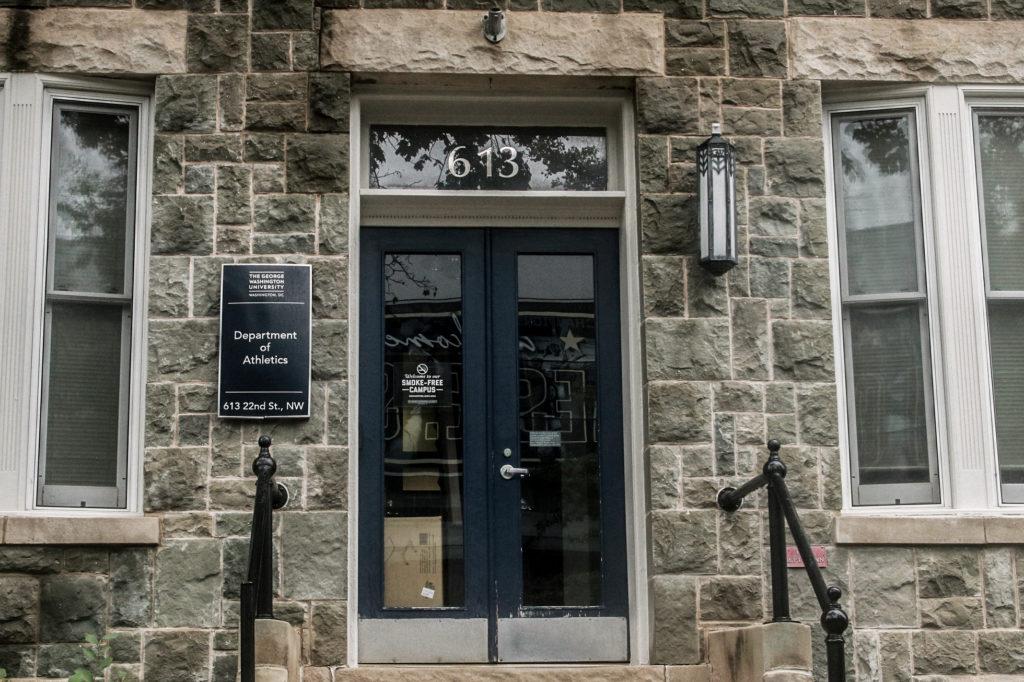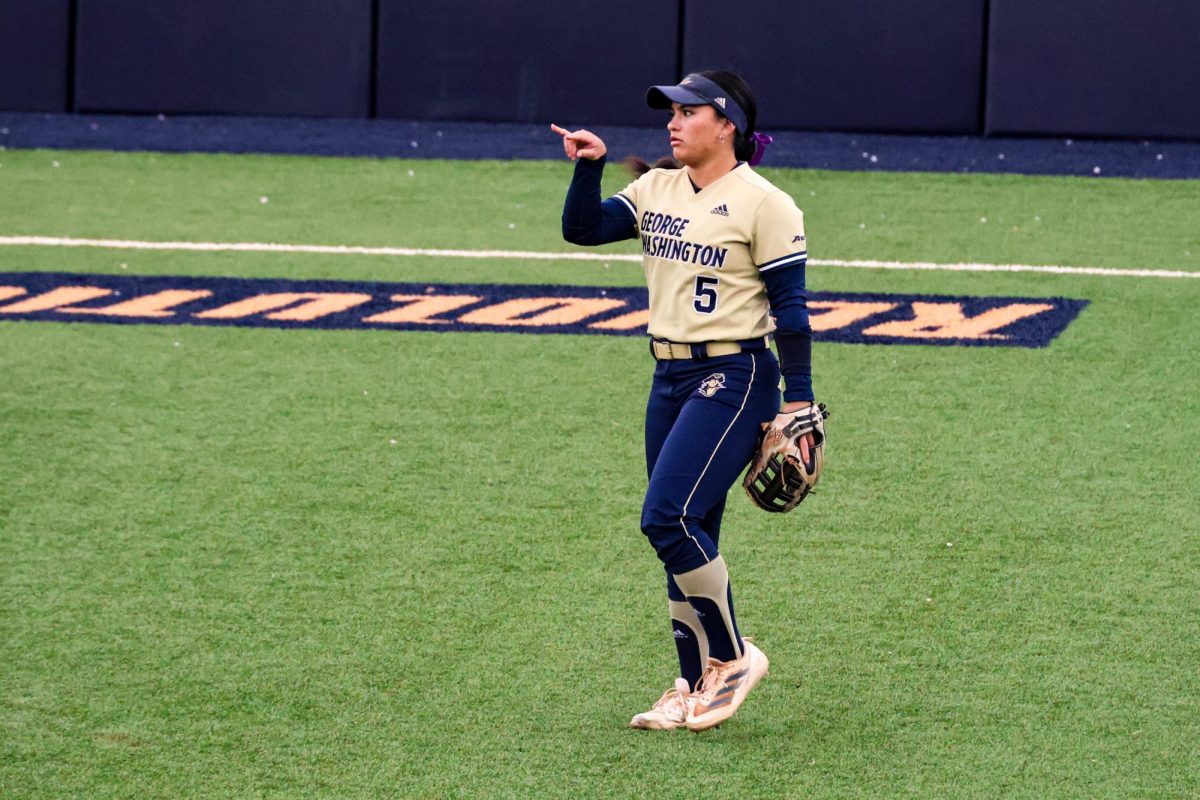Sports law and business experts said GW may risk damaging alumni relationships and missing out on tuition revenue once it eliminates seven varsity programs at the end of the academic year.
The University will take varsity status away from men’s rowing, men’s tennis, men’s indoor track and field, men’s and women’s squash, women’s water polo and sailing at the end of the 2020-21 year. Experts said while cutting the program could appear as a short-term cost-saving measure, GW is putting donations, marking and recruitment opportunities on the line.
Alumni of eliminated teams said they’re disappointed with the University’s decision, adding that they’re reconsidering their financial support to the athletic department and hoping to turn their programs into club teams. Squash and women’s water polo alumni launched petitions urging GW to reconsider its decision.
David Ridpath, an associate professor at Ohio University specializing in sports administration, said most alumni donors are lost “forever” if their sport is no longer supported at their alma mater.
“When you’re dropping sports, one of the key things that you’re going to damage is alumni relations,” Ridpath said. “You’re going to hurt a lot of graduates of that program.”
GW is one of several schools cutting programs amid the COVID-19 pandemic. Stanford chopped 11 sports in July, Iowa discontinued four programs in August and Connecticut cut four teams in June. GW is the only school in the 14-member Atlantic 10 Conference that has announced sport eliminations.
Ridpath said sports that offer partial or zero scholarships usually generate income for the school via the tuition of its athletes. Women’s water polo alumni said in a statement that the program generates an estimated 400 percent return on the University’s $200,000 investment into the team each year.
He added that universities and athletic departments can save money by reducing coaches’ salaries rather than eliminating entire programs. To save money, Vogel and other administrators and deans are taking a pay cut that will last at least until the end of the academic year.
“What are you saving when you’re not having these sports at George Washington? What are you gaining?” Ridpath said. “And I’d say you’re losing a lot, and you’re gaining very little, if anything. Almost always, the backlash, the negatives, far outweigh the positives.”
Ridpath said schools are already suffering from slashed enrollment and finances amid the pandemic, and cutting programs will further hurt enrollment opportunities. Officials are closely monitoring the University’s matriculation this semester as 150 freshmen – a larger number than in previous years – deferred enrollment.
“Universities are very short-sighted when they drop sports – they don’t really think it through,” Ridpath said. “But they’re doing it because they want to preserve the sports they think make all kinds of money, but even at George Washington, you’re primarily funded by students.”
Joel Maxcy, the director of sports management at Drexel University, said larger costs, like coach salaries, are fixed costs that are not easy to eliminate. He added that smaller programs were “low-hanging fruit” for the athletic department to cut because other larger, long-term wages cannot be moved.
Athletic department spokesman Brian Sereno declined to say how much money the University would be saving by cutting the seven programs, deferring to the Frequently Asked Questions page of the initial announcement.
The page states that savings “cannot be tabulated in one total sum” and will be seen gradually as students come off scholarship and expenses in areas like travel, compensation and operation are reduced. It added that the athletic department had been underfunded and understaffed, and the cuts will help remedy that issue.
Maxcy said GW’s decision may be short-sighted because the long-term value of most athletic programs is not in their direct revenue, but the publicity and students they bring to the school over time.
“One of the things to think about is, why do universities have sports anyway?” Maxcy said. “And it’s not really in the sense to make money, but what they are doing is trying to attract students and students that ultimately pay tuition and so forth. That means that those sports that they’re cutting, at some point in the past, were perceived to have value.”
Jeffrey Wolfman, the vice president for institutional advancement at Fitchburg State and the son of former GW Associate Vice President of Academic Affairs Brunetta Wolfman, said the University will be hard-pressed to convert athletic donors into academic donors once athletic programs are removed.
“People who give to athletics could care less about the library or could care less about the rising star junior faculty startup packages,” Wolfman said. “They’re only interested in that affinity to that sport, and it’s a very tough negotiation to convert an athletic donor to an academic donor.”
Patrick Rishe, the director of sports business at Washington University in St. Louis, said student-athletes have a high “marketing value” even if their sport doesn’t generate a profit, as they can advocate for the University to their communities and potential recruits.
But despite the sports’ marketing capabilities or donor involvement, he said the decision to cut a program comes down to its bottom line, which can disproportionately affect men’s programs. Of the seven squads cut, four were men’s teams and sailing was co-ed.
“Ultimately, these decisions come down to dollars and cents, unfortunately,” he said.








